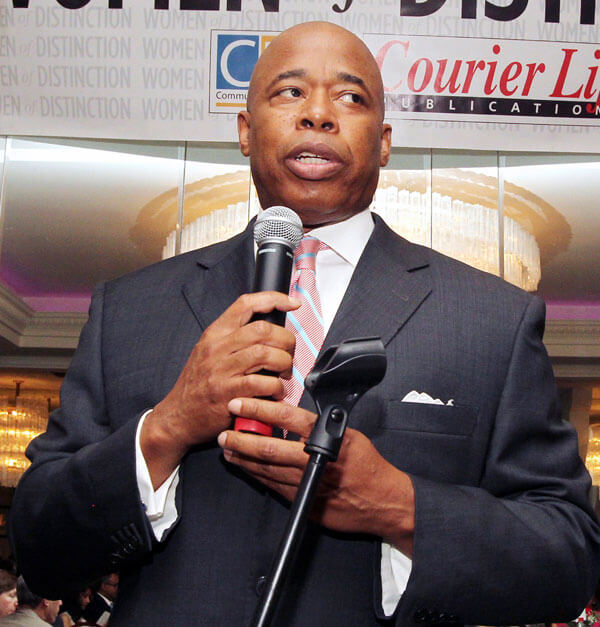The City Council has unanimously passed Intro. 240-A, a bill sponsored by Council Member Jumaane D. Williams (D–Brooklyn), Deputy Leader and Chair of the Council’s Housing and Buildings Committee, which would increase inspections and require expedited repairs for clogged or damaged catch basins in New York City.
A catch basin is a type of storm drain that is normally located adjacent to a curb, where it collects rainwater from the streets and directs it into the sewer.
Catch basins can become clogged with refuse and debris, which may lead to localized flooding. Currently the 148,000 catch basins maintained by the Department of Environmental Protection are inspected about once every three years, said Williams, representative for the 45th Council District in Brooklyn.
Intro 240-A would require the city to inspect catch basins, at a minimum, once every year and unclog or repair clogged catch basins within nine days after inspection or the receipt of a complaint that catch basin is clogged.
The law also requires that the department submit reports twice each year to the mayor and the speaker regarding the inspection, maintenance, and repair of catch basins, disaggregated by community district.
Catch basins that have not been unclogged or repaired within nine days after an inspection or the receipt of a complaint will be identified in the next report.
“For parts of this city — including several residential roads in my district — the rain causes larger headaches than it should because of frequently clogged catch basins,” Williams told Caribbean Life. “It’s an issue that not only inconveniences neighborhoods, but can cause significant water damage to property.
“Though the Department of Environmental Protection checks these drains every 3 years, we know that’s not enough to adequately ensure that problematic drains are cleared,” he added.
“I am proud to sponsor Int. 240, which will require annual inspections of catch basins and a semi-annual report by the DEP to the Council,” Williams continued. “I would like to thank Speaker Melissa Mark-Viverito and the Council’s chair of environmental protections Donovan Richards for pushing this important legislation.”























